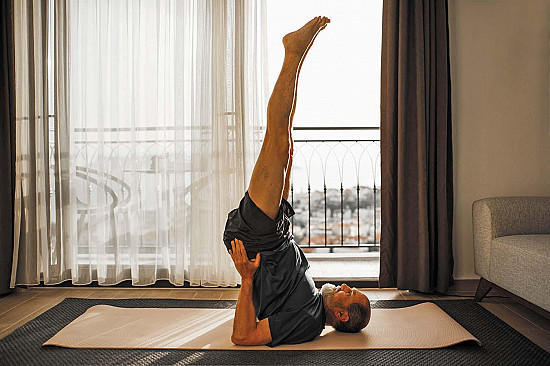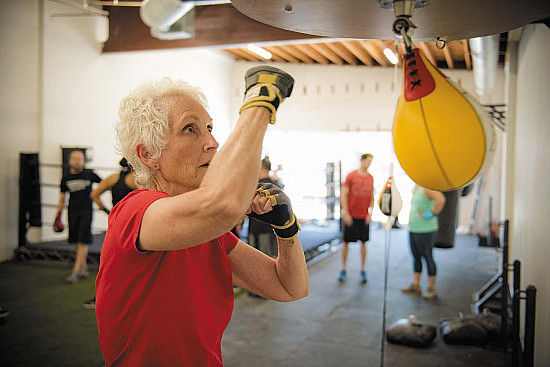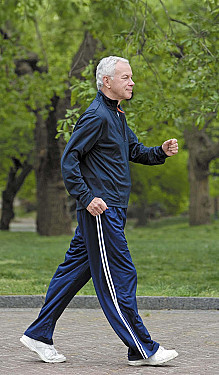Face masks don’t affect exercise breathing
In the journals

Many people shun wearing face masks when exercising outside or in enclosed gyms because they feel uncomfortable. But another concern is that masks make breathing more difficult, and that rebreathing the higher amounts of carbon dioxide a person exhales when exercising could lead to higher levels of carbon dioxide in the blood.
However, a study published online Nov. 3, 2020, by the International Journal of Environmental Research and Public Health did not find evidence to support either of these worries. Researchers asked healthy, active people to perform cycling exercises until exhaustion on three occasions. For each workout, the exercisers wore either a surgical mask, a cloth mask, or no mask. The researchers found no significant changes in oxygen intake or carbon dioxide blood levels whether the exercisers did or did not wear a face mask. Masks also did not increase heart rates or hasten fatigue.
While face masks may not be comfortable, they can protect against COVID-19 and won't interfere with your efforts to stay fit during the pandemic.
Image: © SelectStock/Getty Images
Disclaimer:
As a service to our readers, Harvard Health Publishing provides access to our library of archived content. Please note the date of last review or update on all articles.
No content on this site, regardless of date, should ever be used as a substitute for direct medical advice from your doctor or other qualified clinician.















